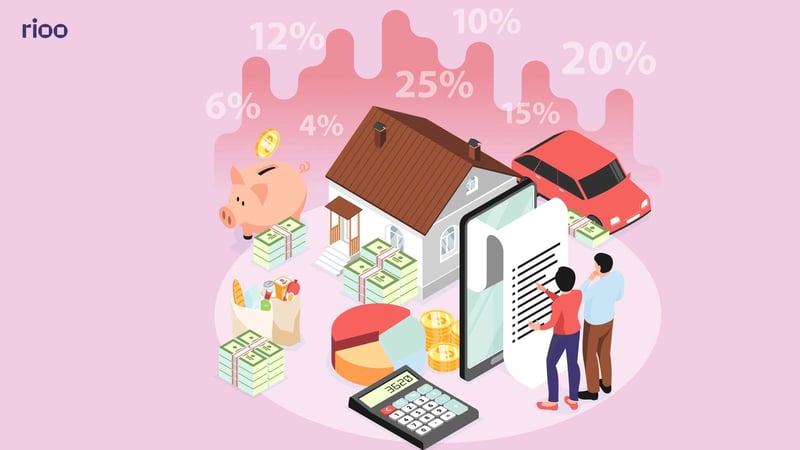In today's competitive real estate market, setting the right price for a property is more than just a guesswork—it requires a strategic approach backed by data. Real estate pricing strategies have evolved significantly, leveraging technology and analytics to maximize property value. Whether it's for selling or renting, understanding market trends and using data-driven insights ensures properties are priced accurately, attracting the right buyers or tenants while maximizing returns.
The Power of Data-Driven Pricing
Traditional pricing methods relied heavily on comparative market analysis and intuition. While these still hold value, modern real estate pricing strategies integrate big data, predictive analytics, and AI-driven tools to refine pricing decisions. Data-driven rent pricing, for instance, considers factors like local demand, seasonal trends, and economic conditions to ensure properties remain competitive.
Some key benefits of using data-driven pricing include:
Accurate Property Valuation: Advanced algorithms assess market conditions, past sales, and economic indicators to provide precise property valuation.
Competitive Advantage: Real-time data allows property owners to adjust prices dynamically, staying ahead in the market.
Optimized Rental Income: Rental pricing optimization ensures landlords set the right rental rates based on tenant demand, neighborhood trends, and property features.

Key Elements of Data-Driven Pricing Strategies
1. Market Trends & Demand Analysis
Understanding local market trends is essential for effective real estate pricing strategies. Modern data platforms analyze pricing patterns, buyer behaviors, and economic shifts to provide valuable insights. These tools help property owners identify peak demand periods, adjust pricing accordingly, and stay competitive in fluctuating markets, ultimately leading to better pricing decisions and higher property value.
2. Comparative Analysis
Traditional property valuation methods rely on comparable sales, but data-driven approaches go beyond by evaluating property condition, neighborhood trends, and buyer preferences. By incorporating real-time market data, property owners can set competitive prices that reflect true market demand. This detailed analysis ensures accurate pricing, reducing the chances of overpricing or undervaluing a property in a competitive market.
3. AI & Predictive Analytics
Artificial intelligence and predictive analytics enhance real estate pricing strategies by forecasting future property values. These tools analyze historical data, economic indicators, and housing trends to predict price movements. By leveraging AI-driven insights, property owners can set optimal prices that maximize long-term value, ensuring higher returns on investment and improved decision-making in real estate transactions.
4. Dynamic Pricing for Rentals
Rental pricing optimization ensures landlords set competitive rates by adjusting prices based on seasonality, demand fluctuations, and market trends. Dynamic pricing models use data-driven insights to prevent vacancies while maximizing rental income. By continuously analyzing competitor pricing and tenant demand, property owners can strike the right balance between affordability and profitability, ensuring consistent occupancy rates and higher returns.
Maximizing Property Value with Smart Pricing
Maximizing property value requires a strategic approach to real estate pricing strategies that prioritizes long-term profitability over short-term gains. By leveraging data insights, property owners can make informed decisions that enhance their returns. Competitive pricing attracts more buyers, reducing the time a property sits on the market and increasing the likelihood of a successful sale. For investors, pricing strategies play a crucial role in maintaining steady cash flow and ensuring long-term appreciation. A well-priced property not only secures a better selling price but also establishes value in a competitive market. For rental properties, data-driven rent pricing helps minimize vacancy rates by adjusting rental prices based on market demand, local trends, and seasonal factors. This ensures landlords maintain a consistent rental income without overpricing or undervaluing their properties. By embracing rental pricing optimization, property owners can maximize their asset's potential, ensuring both profitability and sustainable market positioning.
Benefits of Data-Driven Pricing Strategies
More Accurate Property Valuation
Data-driven pricing strategies utilize real-time market insights, historical sales data, and predictive analytics to determine a property's true worth. Unlike traditional pricing methods that rely on rough estimates, this approach ensures fair and competitive pricing. By factoring in local demand, neighborhood trends, and property conditions, sellers can attract the right buyers and maximize value.
Increased Profitability
By leveraging data, sellers can set optimal price points that reflect current market conditions, ensuring they don’t undervalue or overprice their properties. Buyers also benefit from informed decision-making, as they gain insights into property appreciation trends. This strategic approach leads to higher returns, better negotiation power, and overall improved profitability for both parties.
Faster Transactions
Accurate pricing reduces the gap between seller expectations and buyer affordability, speeding up the sales process. When a property is priced based on precise market data, it eliminates prolonged negotiations and prevents listings from sitting unsold. This efficiency benefits both buyers and sellers, ensuring quicker property turnover and minimizing holding costs for sellers.
Market Trend Adaptability
The real estate market fluctuates due to economic changes, interest rates, and buyer behavior. A data-driven approach allows property owners to adjust prices dynamically in response to these factors. Whether it's a surge in demand or a market slowdown, adaptive pricing ensures properties remain competitive, reducing vacancy rates and maximizing investment potential.
Wrapping Up
Leveraging data in real estate pricing strategies has become a necessity rather than a choice. In a highly competitive market, relying on traditional pricing methods alone can lead to missed opportunities and reduced profitability. By integrating analytics, AI-driven models, and real-time market insights, property owners can make informed pricing decisions that align with market demand and property value trends.
For sellers, data-driven pricing helps attract buyers faster by setting competitive yet profitable prices. For landlords, rental pricing optimization ensures steady occupancy rates and maximized rental income. Additionally, precise property valuation backed by comprehensive market data minimizes risks and enhances investment returns.
Embracing data-driven rent pricing also allows for adjustments based on economic conditions, seasonality, and local market shifts. Ultimately, data-driven strategies empower property owners to maximize their investments, reduce vacancies, and achieve long-term financial success in the ever-evolving real estate market.













